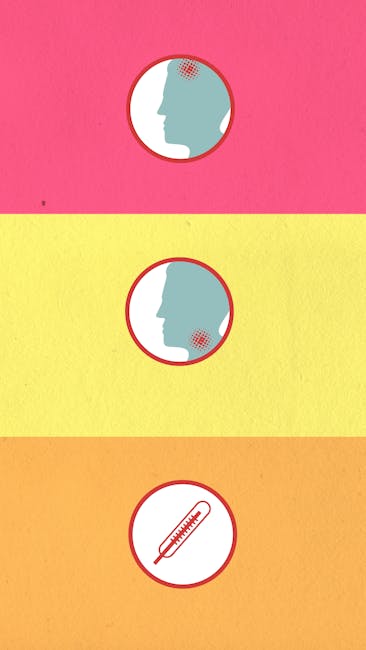The Shocking Link Between Common Drugs and Dementia: What You Need to Know
The Shocking Link Between Common Drugs and Dementia: What You Need to Know
Dementia, a debilitating condition affecting millions worldwide, is characterized by a gradual decline in cognitive abilities, impacting memory, thinking, and behavior. While aging is a significant risk factor, research increasingly highlights the role of environmental factors, including medication use, in its development. This article delves into the concerning relationship between certain commonly prescribed drugs and the increased risk of dementia, empowering you with the knowledge to make informed decisions about your health and well-being.
Anticholinergic Drugs: A Major Culprit
Anticholinergic drugs are a class of medications that block the action of acetylcholine, a neurotransmitter crucial for memory and cognitive function. These drugs are widely prescribed for various conditions, including:
- Overactive bladder
- Parkinson’s disease (some medications)
- Allergic reactions (some antihistamines)
- Gastrointestinal issues (certain antispasmodics)
- Mental health disorders (some antidepressants and antipsychotics)
Numerous studies have linked long-term use of anticholinergic drugs to an increased risk of dementia, including Alzheimer’s disease. The mechanism isn’t fully understood, but the disruption of acetylcholine’s role in brain function is believed to be a significant contributing factor. The higher the cumulative anticholinergic burden (the total anticholinergic effect from multiple drugs), the greater the risk. This means taking even seemingly harmless over-the-counter medications containing anticholinergic agents, alongside prescription drugs, can significantly increase the risk.

Identifying Anticholinergic Medications:
It’s crucial to understand which medications possess anticholinergic properties. While a pharmacist or doctor can provide specific guidance, you can often find this information on medication labels or online drug databases. Look for terms like ‘anticholinergic’ or indications that the drug affects the parasympathetic nervous system.

Nonsteroidal Anti-inflammatory Drugs (NSAIDs): A Complex Relationship
Nonsteroidal anti-inflammatory drugs (NSAIDs) like ibuprofen and naproxen are widely used to relieve pain and inflammation. While offering significant benefits for many conditions, studies have presented conflicting evidence regarding their link to dementia. Some research suggests a potential increased risk, particularly with long-term, high-dose use. However, other studies have found no significant association.
The complexity arises from several factors. Firstly, many individuals who use NSAIDs regularly may already have underlying health conditions that increase their risk of dementia, making it challenging to isolate the drug’s effect. Secondly, different types of NSAIDs may have varying effects on brain health. Further research is needed to clarify the precise relationship between NSAID use and dementia risk.
Benzodiazepines and Other Sedative-Hypnotics: A Cautionary Note
Benzodiazepines, often prescribed for anxiety and insomnia, and other sedative-hypnotics, are known to affect cognitive function, even in the short term. Long-term use of these drugs has been linked to an increased risk of cognitive decline and dementia. The mechanism likely involves disruptions in sleep architecture and neurotransmitter systems critical for brain health.
The cognitive impairments associated with these drugs can be substantial, including difficulties with memory, attention, and executive functions. While these drugs can be beneficial for managing acute anxiety or insomnia, their long-term use should be approached cautiously, particularly in older adults who are already at higher risk of dementia.

Heart Medications and Dementia: The Potential Link
Some medications used to treat cardiovascular conditions have been associated with a slightly increased risk of dementia. This includes certain classes of antihypertensives (blood pressure medications) and statins (cholesterol-lowering drugs). However, the evidence isn’t as conclusive as it is for anticholinergic drugs or benzodiazepines.
It’s crucial to remember that these medications often save lives and improve cardiovascular health, which indirectly reduces the risk of dementia. The potential increased risk of dementia associated with these drugs needs to be weighed against their substantial benefits in preventing heart attacks and strokes, which are also significant risk factors for dementia.
Minimizing Your Risk: Practical Steps
While the link between certain medications and dementia isn’t always definitive, you can take proactive steps to minimize your risk:
- Regularly review your medications with your doctor. Discuss any concerns about potential side effects, especially regarding cognitive function. Explore alternative treatments if possible.
- Minimize polypharmacy (taking multiple medications simultaneously). This is often a source of drug interactions and adverse effects.
- Maintain a healthy lifestyle. This includes a balanced diet, regular exercise, and adequate sleep. These lifestyle factors contribute significantly to brain health and can help mitigate the impact of any potential risk factors.
- Stay mentally active. Engage in activities that challenge your brain, such as reading, puzzles, and learning new skills. Cognitive stimulation can help maintain cognitive function.
- Manage underlying health conditions. Effectively managing conditions such as high blood pressure, high cholesterol, and diabetes reduces the overall risk of dementia.
Conclusion: Informed Choices for Brain Health
The relationship between certain commonly used drugs and dementia is a complex and evolving area of research. While some medications are clearly linked to an increased risk, others require further investigation. This article aims to inform you, not alarm you. The key is to engage in open communication with your doctor, carefully review your medication regimen, and adopt a healthy lifestyle to proactively support your brain health.
Remember, maintaining open communication with your healthcare provider is vital. They can help you assess your individual risk factors and make informed decisions about your medication and overall health, aiming for a balanced approach that maximizes benefits while minimizing potential risks associated with various medications.
This information is for educational purposes only and should not be considered medical advice. Always consult with a healthcare professional before making any changes to your medication regimen.






